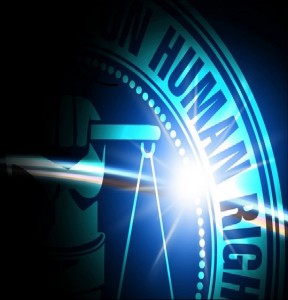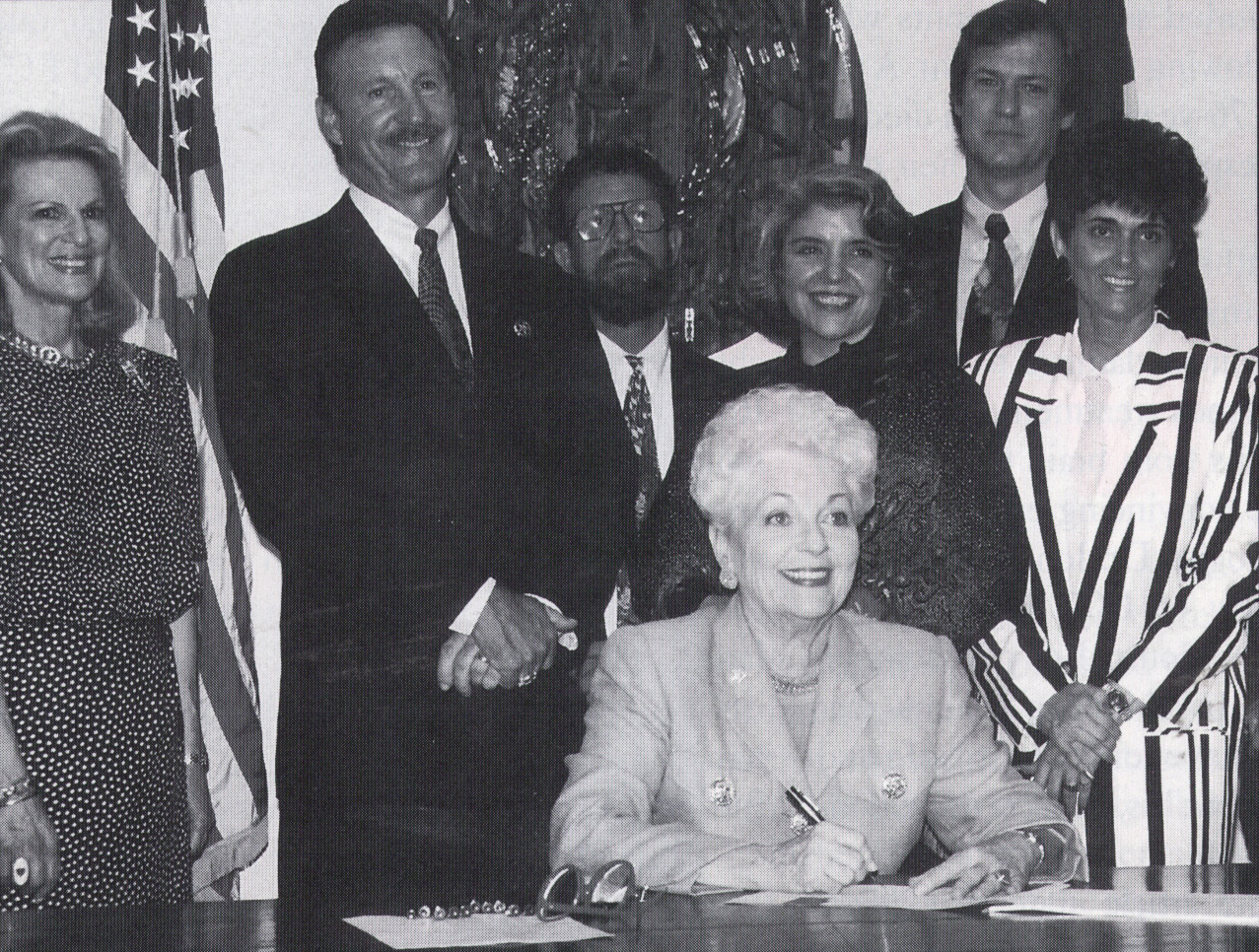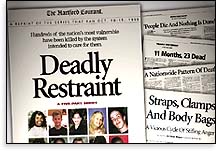CCHR’s Mission: Restore Human Rights to the Field of Mental Health
 The following is a brief summary of CCHR accomplishments:
The following is a brief summary of CCHR accomplishments:
Protecting Children’s Rights— CCHR documented numerous cases of parents being coerced/pressured or forced to give their children psychiatric drugs as a condition of attending school, including parents charged with medical neglect for refusing to give their child a drug documented to cause suicide and violence. CCHR spearheaded a national campaign on this issue and by working directly with parents, and bringing this issue before both state and federal legislators, the Prohibition on Mandatory Medication Amendment was passed into federal law in 2004, prohibiting schools from requiring a child take a psychiatric drug as a requisite for attending school. CCHRs work with state legislators lead to the passage of similar laws in 9 states.
- The United Nations Committee on the Rights of the Child responded to reports from CCHR Finland, Australia and Denmark, expressing concerns that ADHD and ADD “are being misdiagnosed and therefore psycho-stimulant drugs are being over-prescribed, despite growing evidence of the harmful effects of these drugs.” The Committee recommended, “other forms of management and treatment be used as much as possible to address these behavioral disorders.”
- In 1991, due to CCHR’s efforts, the FDA held hearings into the antidepressant drug Prozac, where dozens of consumers testified that the drug had turned people with no previous history of psychosis, suicidal and homicidal. However, due to the vested interests of the voting FDA board members, no action was taken to protect the public until nearly 13 years later when CCHR’s more than 10 year campaign to expose the dangers of these drugs came to fruition, and the FDA (under pressure from Congress) finally issued the agencies strongest warning that antidepressants can cause suicidal thoughts and actions in those 18 years of age and younger. This was later extended to age 24.
 In 2007, working with whistleblowers, parents and consumer groups, CCHR was instrumental in helping to secure language in the FDA reform bill making it mandatory for all pharmaceutical print ads to advise patients to report drug adverse reactions directly to the FDA. Following the first ads being published, the number of Adverse Drug Reports increased by 33 percent.
In 2007, working with whistleblowers, parents and consumer groups, CCHR was instrumental in helping to secure language in the FDA reform bill making it mandatory for all pharmaceutical print ads to advise patients to report drug adverse reactions directly to the FDA. Following the first ads being published, the number of Adverse Drug Reports increased by 33 percent.
- Creating the online Psychiatric Drug Side Effects Search Engine —Because the public has been so mislead by the psychiatric/pharmaceutical industry on the dangers of psychiatric drugs, CCHR has created a one-of-a-kind, easy to search psychiatric drugs side effects database, containing summaries of all international studies and drug regulatory warnings that have been issued on both classes of drugs (antidepressants, antipsychotics, anti-anxiety drugs, stimulants, etc) and brand names such as Prozac, Zoloft, Paxil, Risperdal, Seroquel, Ritalin etc. CCHR also decrypted hundreds of thousands of adverse reaction reports filed with the FDA so that these could be easily searched by the public. The search engine is now provided by CCHR as a free public service to help people make educated decisions based on facts, not marketing campaigns. CCHR is the only organization in the world to have taken the time and effort needed to compile all this documented information for the public’s use.
- Working with journalists, CCHR helped investigate and subsequently expose the fact that numerous school shooters had been under the influence of psychiatric drugs documented to cause violence, suicide and mania, resulting in state hearings investigating this issue and national press coverage on the link between senseless acts of violence and psychiatric drugs.
Legal Rights & Informed Consent
- In the early 1970s, CCHR’s investigations led to government inquiries into numerous state psychiatric facilities in California, Illinois, Hawaii, Michigan and Missouri—resulting in hospital administrators and psychiatrists being dismissed, criminal and grand jury investigations being held, and closure of major psychiatric units due to the abuses CCHR had uncovered against patients.
 The Texas Governor, along with CCHR Texas representatives, signed a law prohibiting ECT on children under 16. In 1976, due to CCHR’s efforts, the first law to protect patients against enforced electroshock and psychosurgery was passed in California, providing informed consent and banning their use on children under the age of 12. This became a model law, adopted in substance by legislatures across the United States and in other countries. The most restrictive law to date is Texas that raised the age limit for ECT to 16 years, and where psychiatrists must warn patients in writing of the potential for ECT to cause death and/or permanent memory loss. Psychiatrists must also ensure autopsy reports on any deaths within 14 days of ECT administration.
The Texas Governor, along with CCHR Texas representatives, signed a law prohibiting ECT on children under 16. In 1976, due to CCHR’s efforts, the first law to protect patients against enforced electroshock and psychosurgery was passed in California, providing informed consent and banning their use on children under the age of 12. This became a model law, adopted in substance by legislatures across the United States and in other countries. The most restrictive law to date is Texas that raised the age limit for ECT to 16 years, and where psychiatrists must warn patients in writing of the potential for ECT to cause death and/or permanent memory loss. Psychiatrists must also ensure autopsy reports on any deaths within 14 days of ECT administration.
- In Italy, the birthplace of ECT, the region of Sicily banned the use of all ECT.
- In the 1990s, CCHR helped uncover and expose that up to 150 restraint deaths occur in psychiatric facilities each year in the U.S. alone, with nearly 10% of these being children, some as young as six. Federal regulations were passed in 1999 that prohibit the use of physical and chemical (mind-altering drugs) restraints to coerce or discipline patients. Also, a “national reporting system” to be implemented and for government funding to be cut to any facility that did not comply.
- In the 1980s/early 1990s, CCHR spearheaded a campaign to expose and ban Deep Sleep Treatment (DST) at Chelmsford Private Psychiatric Hospital in Sydney, Australia. The “treatment” involved knocking the patient unconscious for three weeks with a cocktail of psychiatric drugs and electroshocking them daily, without their consent. It killed 48 people. CCHR achieved its ban under the Mental Health Act and it is a criminal offense for psychiatrists to administer it. CCHR also obtained the country’s highest level of government inquiry into DST and mental health, leading to significant reforms.
Exposing Criminal Psychiatric Abuse
CCHR has campaigned for uncompromising execution of justice for mental health practitioners who rape or sexually abuse their patients, but hide behind their roles as therapists to mitigate their crimes. In protecting patients from sexual abuse and fraud the following are a sample of safeguards achieved:
- At least 25 statutes have been enacted defining sex crimes committed by psychiatrists and psychologists in the United States, Australia, Germany, Sweden and Israel. The laws label therapist patient sex as sexual assault or rape. Hundreds of psychiatrists and psychologists have been convicted and jailed. Visit www.psychcrime.org.

- CCHR’s investigations led to a major private psychiatric hospital chain in the U.S. being investigated by 14 federal and state investigations for fraud and patient abuse. Before closing, the hospital chain paid out millions of dollars in criminal and civil fines. Laws were subsequently passed outlawing the practice of using “bounty hunters” for locating individuals with good insurance in order to involuntarily institutionalize them in psychiatric facilities and milk their insurance dry.
- Numerous other private-for-profit psychiatric hospitals were subsequently investigated. By 2003, state and federal authorities had 80 percent of the US private psychiatric hospital market under criminal investigation, which resulted in $2.1 billion in criminal and civil fines.
Human Rights Secured
 CCHR photographed and then exposed secret psychiatric “slave labor” camps in South Africa where tens of thousands of Africans were incarcerated in the 1970s and 80s against their will in disused mining compounds, drugged and subjected to painful electroshock without anesthetics. The apartheid government responded in 1976 by banning the photographing or dissemination of any information about psychiatric institutions, at which point CCHR obtained a World Health Organization investigation that substantiated CCHR’s allegations. When apartheid ended, CCHR presented oral and written testimony to South Africa’s Truth and Reconciliation Commission investigating apartheid crimes and obtained a national government inquiry into psychiatric racism. The government repealed the ban on disclosing information about psychiatric abuse.
CCHR photographed and then exposed secret psychiatric “slave labor” camps in South Africa where tens of thousands of Africans were incarcerated in the 1970s and 80s against their will in disused mining compounds, drugged and subjected to painful electroshock without anesthetics. The apartheid government responded in 1976 by banning the photographing or dissemination of any information about psychiatric institutions, at which point CCHR obtained a World Health Organization investigation that substantiated CCHR’s allegations. When apartheid ended, CCHR presented oral and written testimony to South Africa’s Truth and Reconciliation Commission investigating apartheid crimes and obtained a national government inquiry into psychiatric racism. The government repealed the ban on disclosing information about psychiatric abuse.
- CCHR in Germany conducted comprehensive research that established conclusively that Germany’s leading psychiatrists provided the theory as well as the “scientific” justification for the Nazi government to destroy “life unworthy of living.” Euthanasia was first piloted in psychiatric institutions before being exported to the concentration camps. Many Nazi psychiatrists escaped justice at the Nuremberg Trials and continued practicing after the war. In 1995 CCHR published the acclaimed book Psychiatrists: The Men Behind Hitler. Four years later, the German psychiatric association issued a report admitting that psychiatrists were “active in and primarily responsible for the different euthanasia organizations. They guided and directed the different euthanasia campaigns.” They “observed and controlled the selection of those to be killed.”
- CCHR extensively researched ethnic cleansing in Bosnia and Kosovo, reporting its findings to the U.N. War Crimes Tribunal in The Hague and the Council of Europe. It discovered that psychiatric ideas of racial hygiene and eugenics were behind the conflict, in particular the works of Jovan Raskovic, founder of the Social Democratic Party and Radovan Karadzic, war-time leader—both psychiatrists. In 1999, members of the Council of Europe issued a Resolution that recognized psychiatrists as the architects of the ethnic cleansing and encouraged Council members to “study the material that has been put together and researched by the French chapter of the Citizens Commission on Human Rights.” When Karadzic was captured in 2008, it was widely reported that Karadzik’s ethnic cleansing stemmed from his psychiatric background.
- Along with officials and members of the Italian parliament, CCHR Italy inspected and investigated concentration-camp-like conditions in the country’s psychiatric asylums. Staff had pocketed government funds while patients were left naked and starving. The government responded to the evidence, issuing a Resolution that ordered the closure of the 97 asylums. The abused and neglected inmates transferred to humane homes, many taught to read, write and care for themselves for the first time in 30 years. CCHR was presented with a mayoral medal for its humanitarian efforts.
Public Awareness Educational Materials
As a watchdog organization, CCHR produces millions of educational properties including booklets, white papers, brochures and documentaries in up to 17 languages covering all aspects of psychiatry’s harmful impact on society and the need for reform to protect patients civil and human rights and to require informed consent. In addition to its feature-length documentaries, CCHR also produces short educational videos featured on its youtube channel Working with doctors, whistleblowers, parents, consumers and other civil and human rights organizations, CCHR has been able to provide government officials with documentation necessary to expose abuses in the field of mental health and help achieve legislative reforms that protect consumer & patient rights.



SHARE YOUR STORY/COMMENT